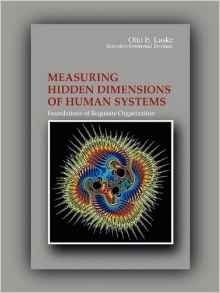Until quite recently, the notion that adults develop over their entire lifetime has been a well kept academic secret. It still is. Attempts at establishing “deliberately developmental organizations” (DDO’s; Kegan & Lahey 2016), based on 40 years of research in adult development, are quite recent. This article introduces to the Constructive Developmental Framework (CDF), a synthesis of adult-developmental research since 1975 that has been taught as well as practiced at the Interdevelopmental Institute since 2000 (). CDF is a new tool for understanding how people experience life and work, mostly without full consciousness. This qualitative understanding emerges from semi-structured 1-hour interviews which shed new light on how people construct their workplace internally, both individually and in teams. CDFs main strength in business lies in providing new tools for boosting, through dialog, two human capabilities: making meaning of experiences (called “social-emotional”) and making sense of the real world conceptually (referred to as “cognitive”), as further explained below. Viewed more broadly, CDF comprises a political dimension as well. It is a framework for coaching for society, in the sense of developing self-authoring citizens who can think independently, rather than in dependence on internalized or external others. At the present time, where algorithms... Read More...
Category: integral thinking
Transforming culture by transforming dialog in organizations and institutions
This short text explains what is important about crafting new forms of dialog in organizations and institutions seeking to be innovative. The text points to DTF, the Dialectical Thought Form Framework (2008, second edition 2017), that was introduced in a previous post entitled “A new approach to dialog.” In a time of deliberately developmental organization and organizations transcending rigid managerial hierarchies, the dialogical approach to thinking and managing here highlighted becomes an essential part of innovation. Short Preface, A new approach to dialog OL 3-2017 Read More...
A New Approach to Dialog: Teaching the Dialectical Thought Form Framework (DTF)
Can you imagine being part of a dialog in which you not only listen to what your interlocutor is saying but also to the underlying structure of his or her thinking? If you had knowledge of the thought form structure of human sense making, this way of listening, called “dialectical”, would enable you to point to what is missing (absent) both in your own and others’ verbal communication. It would thereby help you deepen your and others' thinking in real-time dialog. Your critical listening would then not be restricted to content but would equally focus on underlying thought structures used by your interlocutors. In a team and group context, you would be able to point to interlocutors’ thought gaps in a compassionate, inter-developmental, way. Such gaps are not “academic”. They are more serious than that since they translate into gaps between how people think and how reality works. It is this kind of dialog that the present article introduces. The article paves the way for an intelligent reading and teaching of the Manual of Dialectical Thought Forms (DTFM), which in the near future will become available in pdf form on this website under Publications. The article introduces cutting-edge thinking tools... Read More...
A New Era Begins at the Interdevelopmental Institute, Gloucester, MA, USA (IDM)
As the Interdevelopmental Institute (IDM) enters a new era, it wants to communicate what it has learned and what, based on its learning over nearly 20 years, it can now deliver to CEOs and Boards. Find out how the Institute's main methodology, called Constructive Developmental Framework (CDF), addresses contemporary issues such as the digital transformation of businesses in all of its facets. Take note of the critical realism CDF tools embody (thanks to Roy Bhaskar's work on a dialectical ontology), and IDM's critical theory practice that now provides a new home for Frankfurt School insights just in time ... Sincere thanks to the international community of students who have made IDM widely known through their own work over many years! A New Beginning at IDM Read More...
John Stewart Reviews Otto Laske’s Work on Dialectical Thinking
Reviews of my work on dialectical thinking since 1999 are far and few between and have been long in coming. This delay has to do with the fact that my work on this topic responds directly to Bateson's perceptive view that "the major problems in the world (today) are the result of the difference between how nature works and the way people think" (as quoted in this paper). Bateson's perspective, much detailed philosophically by Roy Bhaskar, is a view of no interest in the present, entirely logic-based, global economy and its associated cognitive and social sciences. In this clear and incisive article, John Stewart, organizer of the First Planning Meeting for the Second Enlightenment, explains in more detail why the topic of dialectical thinking touches upon the issue of the evolution of the human race and may well concern its survival. John Stewart on vol. 2 and Primer Read More...
What Everybody is Losing Out On by Bypassing 40 Years of Research on Adult Development
There is a vast lack of knowledge about how one's own level and phase of development as an adult uncanningly and forcefully causes the kind of suffering one feels most keenly. This short article is meant as a pointer to what is missing in all of the "helping" literature and the well-meant helping activities in a society which continues to be characterized by master-slave relationships in a multitude of forms. What is everybody losing out on Read More...
